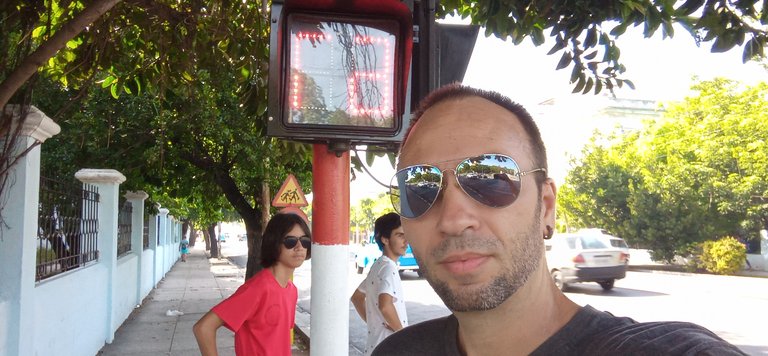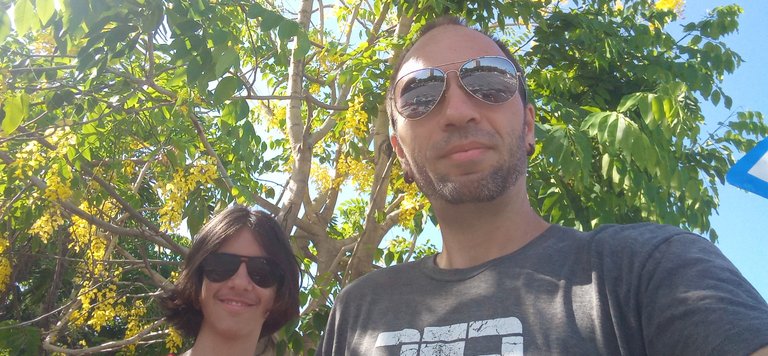Humor is my tool for change / El humor es mi herramienta (eng-esp)
Hello, friends of Holos & Lotus!
A few days ago, I read this question in a post (I can't remember where it was now) and copied it: Can humor and laughter be a tool for social change?
Of course they can. I speak from experience, as a writer who loves using humor and laughter in my literature, especially
The question isn't whether humor can be a tool for social change, but rather how it has been since the first human being realized they could use a laugh to tear down a wall of solemnity and oppression. To uncover falsehoods.

I've seen it, I've read it, and I've felt it. Let's look at art... always art, which is the best thermometer of society. In my own memory, in Cuba, I grew up seeing how a simple stroke of ink could say more than a three-hour speech. Abela's El Bobo, for example, was that character who, with his innocence and his blunders, revealed the absurd contradictions of bureaucracy and daily life. He didn't just teach you a lesson; he made you laugh, and in that laughter, you yourself came to the conclusion.
It was a distorting mirror that, by exaggerating features, gave us back a truer image of ourselves. And then the newspaper Palante, with its sharp and direct humor. Those cartoons were double-edged swords: on the one hand, they cracked you up and, at the same time, they pointed a finger at a wound in your conscience.
They were proof that you can disagree, you can criticize and point the finger, without needing a raised fist, but with an intelligent and shared smile.
Effective.

Literature is not far behind. Satire is the genre of the brave. Voltaire, with Candide, didn't write a pamphlet; he wrote a black, absurd comedy about blind optimism, and that's how his critique resonated deeply and endured.
Cervantes didn't confront the books of chivalry with a serious treatise, but with the tragicomic figure of Don Quixote, and thus ridiculed them forever. Absurd humor, the kind that breaks logic, is especially powerful because it shows us that the world, with all its rigid rules, can be as illogical and arbitrary as a pointless joke. It frees us from the tyranny of the established order.
And that's where I see the crux of the matter, the secret magic of humor: it allows us to say tremendously serious things while laughing, and it all seems like a joke. It's a Trojan horse. We introduce a subversive idea, a stinging critique, under the guise of a joke.

The listener lowers their guard because they think they're just going to have fun. There's no defensive barrier like there is when faced with a serious argument. Laughter is disarming. And when the idea is already inside, when the laughter has passed, that's when it begins to do its work: to erode prejudices, to question dogmas, to show that the emperor, indeed, has no clothes.
Laughter is an act of complicity; it creates a community among those who share my joke. And in that community, united by an ironic worldview, is where I see the first step toward change. That's why I think this way. Of course, humor is a tool for social change. It's perhaps one of the most humane, because it doesn't seek to destroy others, but rather to liberate us all, one smile at a time.
Versión en español
Hola, amigos de Holos & Lotus!
Hace unos días leí en algún post (que ahora no recuerdo dónde fue) esta pregunta y la copié: ¿Pueden el humor y la risa ser una herramienta de cambio social?
Claro que sí. Lo digo por experiencia, como escritor al que le encanta usar el humor y la risa en mi literatura, sobre todo
La pregunta no es si el humor puede ser una herramienta de cambio social, sino cómo lo ha sido desde que el primer ser humano se dio cuenta de que podía usar una carcajada para derribar un muro de solemnidad y opresión. Para destapar falsedades.

Yo lo he visto, lo he leído y lo he sentido. Miremos el arte… siempre el arte, que es el mejor termómetro de la sociedad. En mi propia memoria, en Cuba, crecí viendo cómo un simple trazo de tinta podía decir más que un discurso de tres horas. El Bobo, de Abela, por ejemplo, era ese personaje que, con su inocencia y sus meteduras de pata, revelaba las contradicciones absurdas de la burocracia y la vida diaria. No solo te daba una lección; te hacía reír, y en esa risa, tú mismo llegabas a la conclusión.
Era un espejo deformante que, al exagerar los rasgos, nos devolvía una imagen más verdadera de nosotros mismos. Y luego el periódico Palante, con su humor ácido y directo. Esos dibujos eran armas de doble filo: por un lado te partían de la risa y, al mismo tiempo, ponían el dedo sobre una herida de conciencia.
Eran la prueba de que se puede estar en desacuerdo, se puede criticar y señalar, sin necesidad de un puño en alto, sino con una sonrisa inteligente y compartida.
Efectiva.

La literatura no se queda atrás. La sátira es el género de los valientes. Voltaire, con Cándido, no escribió un panfleto; escribió una comedia negra, absurda sobre el optimismo ciego, y así fue como su crítica caló hondo y perduró.
Cervantes no se enfrentó a los libros de caballerías con un tratado serio, sino con la figura tragicómica de Don Quijote, y así los ridiculizó para siempre. El humor absurdo, el que rompe la lógica, es especialmente poderoso porque nos muestra que el mundo, con todas sus reglas rígidas, puede ser tan ilógico y arbitrario como un chiste sin sentido. Nos libera de la tiranía de lo establecido.
Y ahí es donde veo el meollo del asunto, la magia secreta del humor: nos permite decir cosas tremendamente serias mientras nos reímos, y todo parece una broma. Es un caballo de Troya. Introducimos una idea subversiva, una crítica punzante, dentro del disfraz de la broma.

El receptor baja la guardia, porque piensa que solo va a divertirse. No hay una barrera defensiva como cuando se enfrenta a un argumento serio. La risa desarma. Y cuando la idea ya está dentro, cuando la carcajada ha pasado, es cuando comienza a hacer su trabajo: a erosionar prejuicios, a cuestionar dogmas, a mostrar que el emperador, efectivamente, está desnudo.
La risa es un acto de complicidad, crea comunidad entre quienes comparten mi broma. Y en esa comunidad, unida por una visión irónica del mundo, es donde veo el primer paso para el cambio. Por eso pienso así. Claro que el humor es una herramienta de cambio social. Es quizás una de las más humanas, porque no busca destruir al otro, sino liberarnos a todos, una sonrisa a la vez.
Humor is a social tool, it can calm a nervous person, making it easier to have a proper conversation and foster understanding. So, I totally agree with you.
Greetings ✨
El humor encierra en sí tantas potencialidades para el cambio que muchos a veces lo subvaloran.
No pierdas nunca esa herramienta y foméntala, ¡siempre!